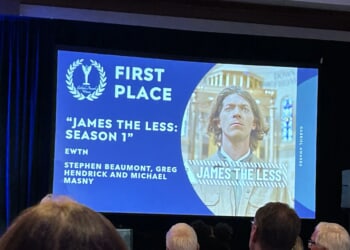The Supreme Court maintained a block preventing the Trump administration from deporting alleged Venezuelan gang members under the Alien Enemies Act (AEA).
In a 7-2 decision, the court affirmed its earlier order issued in a late-night April ruling blocking deportations under the AEA, finding the Fifth Circuit “erred in dismissing the detainees’ appeal for lack of jurisdiction.”
“Under these circumstances, notice roughly 24 hours before removal, devoid of information about how to exercise due process rights to contest that removal, surely does not pass muster,” the majority wrote.
“But it is not optimal for this Court, far removed from the circumstances on the ground, to determine in the first instance the precise process necessary to satisfy the Constitution in this case,” the opinion continues. “We remand the case to the Fifth Circuit for that purpose.”
The justices made clear that they were not ruling on the merits of using the AEA to remove migrants.
“We recognize the significance of the Government’s national security interests as well as the necessity that such interests be pursued in a manner consistent with the Constitution,” the majority wrote. (RELATED: Alito Criticizes Colleagues For Skipping Normal Procedures To Block Deportations In ‘Unprecedented’ Decision)
Trump wrote on Truth Social shortly after the ruling that “THE SUPREME COURT WON’T ALLOW US TO GET CRIMINALS OUT OF OUR COUNTRY!”
Justice Samuel Alito, in a dissent joined by Justice Clarence Thomas, argued the Supreme Court did not have jurisdiction to consider the matter and that the record did not support issuing relief to an entire class.
He wrote that his colleagues mischaracterized what happend at the district court by claiming the judge “constructively denied an injunction by failing to act within the space of a little over two hours on an application that required consideration of important and difficult questions and that was supported by factual submissions that…were very weak.”
“Faced with applicants’ extraordinary demand, the District Court proceeded in an entirely reasonable manner,” he wrote. “The Court characterizes the District Court’s behavior during the period in question as ‘inaction,’ but in my judgment, that is unfair.”
He also faulted the majority for failing to engage with the reasoning behind the district court’s decision last week not to certify a class.
“Clearly, the Court would prefer to ignore the important step of class certification and skip directly to the adjudication of the class members’ rights,” he wrote. “The Federal Rules do not permit such a shortcut.
Alito suggested that his colleagues “plucked a case from a district court and decided important issues in the first instance.”
“To my eyes, that looks far too much like an expansion of our original jurisdiction,” he wrote.
This is a breaking news story and will be updated.
All content created by the Daily Caller News Foundation, an independent and nonpartisan newswire service, is available without charge to any legitimate news publisher that can provide a large audience. All republished articles must include our logo, our reporter’s byline and their DCNF affiliation. For any questions about our guidelines or partnering with us, please contact licensing@dailycallernewsfoundation.org.



![‘It’s a Recipe for a Hundred Years of National Dominance’: Stephen Miller [WATCH]](https://www.right2024.com/wp-content/uploads/2025/05/Stephen-Miller-Completely-Obliterates-CNN-Host-Over-Her-Illegal-Immigration-350x250.jpg)

![Trump Posts Hilarious Pope Meme, Leftists Immediately Melt Down [WATCH]](https://www.right2024.com/wp-content/uploads/2025/05/Trump-Posts-Hilarious-Pope-Meme-Leftists-Immediately-Melt-Down-WATCH-350x250.jpg)


![Mother Breaks Silence After Three Daughters Killed During Father’s Custody Visit, Memorial Held [WATCH]](https://www.right2024.com/wp-content/uploads/2025/06/Mother-Breaks-Silence-After-Three-Daughters-Killed-During-Fathers-Custody-350x250.jpg)
![Wild Road Rage Brawl Erupts in Milwaukee [WATCH]](https://www.right2024.com/wp-content/uploads/2025/05/Road-Rage-Turns-Violent-in-Oregon-Minivan-Mows-Down-Motorcyclist-350x250.jpg)






